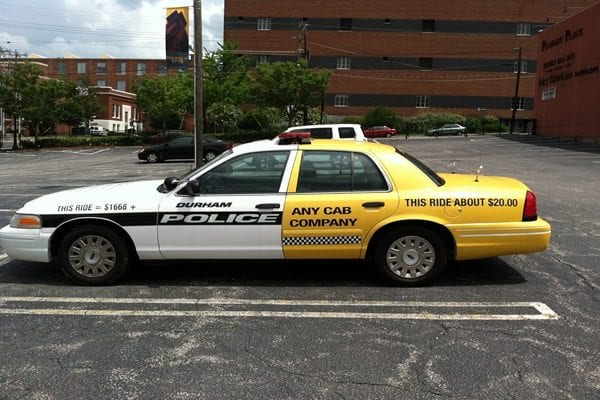
The U.S. justice system is becoming more and more strict with drunk drivers, and Inocencio Muniz of Pennsylvania is someone who found that out the hard way. During the late 1980s, Muniz appealed his conviction for driving under the influence (DUI) all the way to the Supreme Court. His lawyers argued that his arresting officer asked him questions before reading him his Miranda rights. In the famous case of Pennsylvania v. Muniz (1990), the Supreme Court agreed with Pennsylvania.
According to Yahoo News, “the Court maintained Muniz’s conviction, finding that statements made, even while in custody, that were not elicited through interrogation, intended or otherwise, by the police did not fall within the bounds of an individual’s Miranda rights. As such, an individual is not protected by what he or she tells the police freely without solicitation, whether they have been informed of their Fifth Amendment rights or not.” If you were arrested for DUI in Pennsylvania or any other state, it’s highly unlikely that the Supreme Court would help you out. But there are important steps you can take to protect yourself legally.
Statistics
In 2012, 11,956 alcohol-related car accidents took place in PA; 404 people died in such a crash. Approximately 31 percent of these car accident deaths in the state involved alcohol, a proportion that has been holding steady since 2009. And 74 percent of people who died in those crashes were the drunk drivers themselves. This is just Pennsylvania, other states, such as Florida or Georgia have even more staggering statistics.
Blood Alcohol Content Limits
In most states, you’re under the influence if your blood alcohol content (BAC) is 0.08 percent or higher. Under state law, you’ll receive stiffer penalties if your BAC is between 0.10 and 0.159 percent, and harsher punishments still if it’s 0.16 percent or greater. If you’re younger than 21, you’re a DUI offender with a BAC of 0.02 percent or above. Commercial drivers, meanwhile, break the law if their BAC is at least 0.04 percent.
Penalties
A first-time PA DUI offense results in fines of up to $300. A second offense involves fines of $300 to $2,500, a one-year driver’s license suspension, and a prison sentence of five days at minimum and six months at maximum. The punishment for a third offense is ten days to two years in jail, a fine of $500 to $5,000, and another one-year license suspension. You cannot plead guilty to a lesser offense in this state. Although penalties will vary slightly from state to state, this is a good model for fines throughout the rest of the country.
Your Rights
When police officers pull you over, they are not necessarily required to read you your Miranda rights unless and until they arrest you. Whether or not you’ve been read your rights, you may remain silent. Say as few words as possible and tell the officer politely that you cannot answer questions without a lawyer. In particular, do not reveal whether you’ve had a drink. You also have the right to decline all field sobriety tests: walking in a straight line, touching your nose, and so on. However, if the officer brings you to a police station and instructs you to take a chemical DUI test, a test for which you may be asked to provide a urine or blood sample, your license will be suspended for a year if you refuse. The second and third times you reject that test, you’ll be punished with 18-month license suspensions.
In conclusion, keep in mind that the justice system is imperfect. It’s possible to receive a DUI conviction even with a BAC below the legal limit. Therefore, even if you’re positive you’re sober, your wisest course of action when charged with drunk driving is hiring a DUI lawyer right away.



